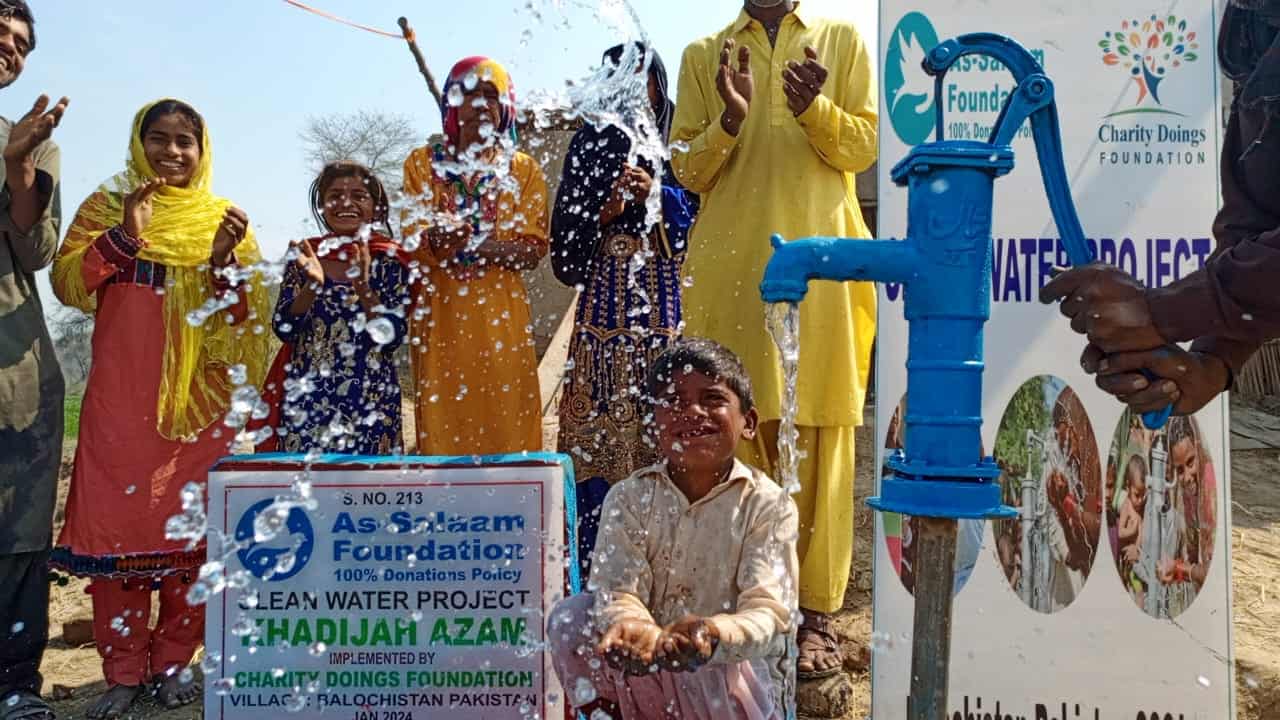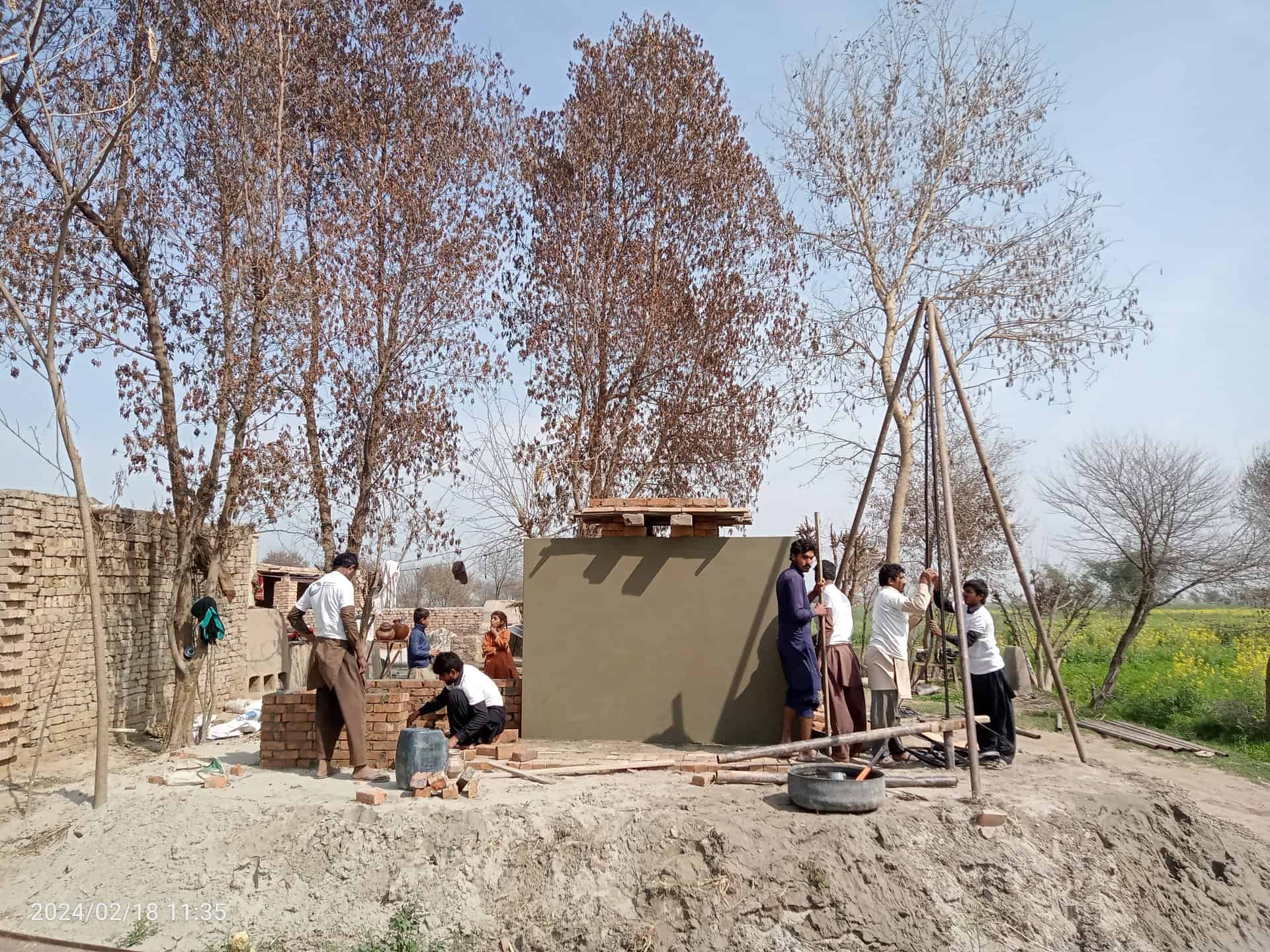
Why Pakistan?
Water scarcity is one of Pakistan’s greatest challenges, particularly in rural and remote areas where communities rely heavily on groundwater. Accessing this water is difficult without proper infrastructure, leaving families to walk long distances to fetch supplies that are often contaminated.
Agriculture — the backbone of Pakistan’s economy — depends on reliable irrigation, yet water shortages threaten both crop production and livelihoods. Climate change, rapid urbanisation, and population growth have only deepened the crisis. In addition, the lack of safe drinking water fuels the spread of waterborne diseases, putting immense pressure on families and health systems.
Reliable water sources are therefore more than just a basic need — they are essential for health, dignity, education, agriculture, and community development.
What is Project Pani?
To address this urgent need, As-Salaam Foundation launched Project Pani, which successfully installed 200 hand pumps and 7 solar-powered wells across Pakistan.
This initiative has transformed life for countless families:
-
Villagers now have direct access to clean water in their own communities, reducing the need to travel long distances.
-
Children, especially girls, have more time for education instead of fetching water.
-
Families are able to practice better hygiene and sanitation, reducing the spread of waterborne diseases.
-
Farmers benefit from reliable irrigation, boosting food security and strengthening livelihoods.
By providing sustainable access to water, Project Pani has improved health, enhanced productivity, and given hope to communities once trapped in cycles of poverty and hardship.
Thanking Our Partners – Saalik Youth Project (SYP)
This achievement would not have been possible without the incredible support of our partners, the Saalik Youth Project (SYP). Together, they raised £12,000 towards this initiative, mobilising their network of young people and adults to champion the cause.
Led by youth leader Imran Ali, SYP not only fundraised tirelessly but also conducted a situational analysis and site visits in Pakistan to assess needs and track progress. Their hands-on involvement exemplified their deep commitment to lasting change.
Thanks to their efforts, entire villages now enjoy clean and reliable water — a gift that will serve generations to come. We are profoundly grateful for their partnership and for everyone who contributed to this remarkable project.



















